Mohamed Abdullahi Farmajo at the Blue Economy Conference Nairobi Images
Summary
Highlights for Monday, 26 November 2018
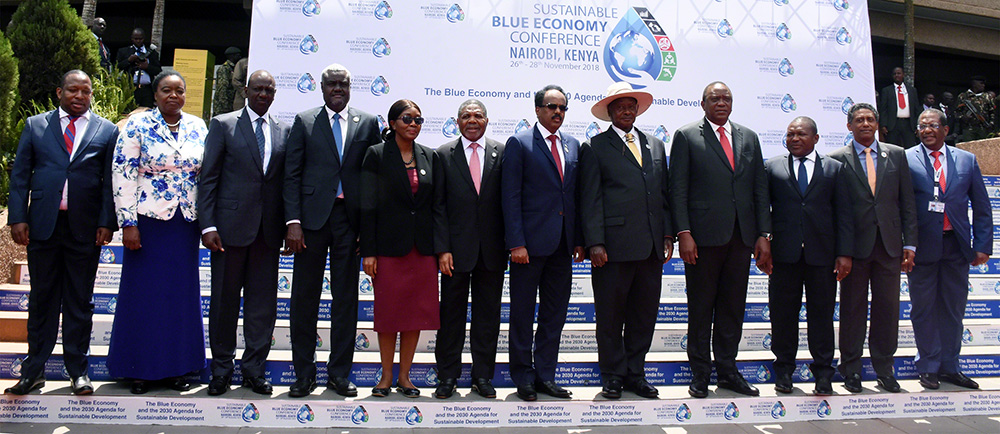
Heads of state group photo
The Sustainable Blue Economy Conference 2018 opened on Monday 26 November in Nairobi, Kenya, as the first global meeting on how to ensure a sustainable blue economy. Over 16,000 participants registered for the event, and Monday saw over 70 countries' heads of states and governments delivering their commitments to achieve the objectives of: harnessing the potential of oceans, seas, lakes and rivers to improve the lives of all; and leveraging the latest innovations, scientific advances and best practices to build prosperity while conserving the global waters for future generations.The Leaders' Commitments segment was interspersed with videos about the nine conference themes. On behalf of the host country, President Uhuru Kenyatta, Kenya, pledged that his country would play a leading role in: implementing proper policies and mechanisms to harness the blue economy; managing waste for the sake of food security and biodiversity; enforcing sustainable fishing; and ensuring security and safety in the high seas.During opening remarks, Monica Juma, Cabinet Secretary, Kenyan Ministry of Foreign Affairs, said that oceans, seas, lakes and rivers held natural capital that could be used to accelerate economic growth, create jobs and fight against poverty while addressing environmental degradation. She highlighted the aim of the conference was to identify priorities, opportunities and challenges that would result in a Nairobi Statement of Intent, and invited commitments from different sectors to advance a blue economy.Jonathan Wilkinson, Canadian Minister of Fisheries, Oceans and the Canadian Coast Guard, said that the conference would explore how to build a sustainable blue economy that left no one behind and that achieving a blue economy would require reliance on innovation, science and best practices, and a truly collaborative approach to enhance decision making.Apart from the leaders' segment, a dialogue took place on the pillars of a blue economy, these being: productivity through accelerated economic growth, job creation and poverty alleviation; and sustainability through addressing climate change, controlling pollution and managing waste, and sustaining marine life.Many side events were held in parallel with the Leaders' Commitments segment. Among others, the side event on the "Women of the Blue Economy: Lessons from the Field for better Equity and Participation" focused on the challenges for women in the fisheries sector through an interactive conversation among researchers, civil society members and policy makers on gender transformative processes and opportunities in the blue economy in Africa.
IISD Reporting Services, through its ENB+ Meeting Coverage, provided daily web coverage from the Sustainable Blue Economy Conference. In addition, IISD Reporting Services has published a summary report of the Conference in HTML and PDF.
Leaders' Commitment Segment
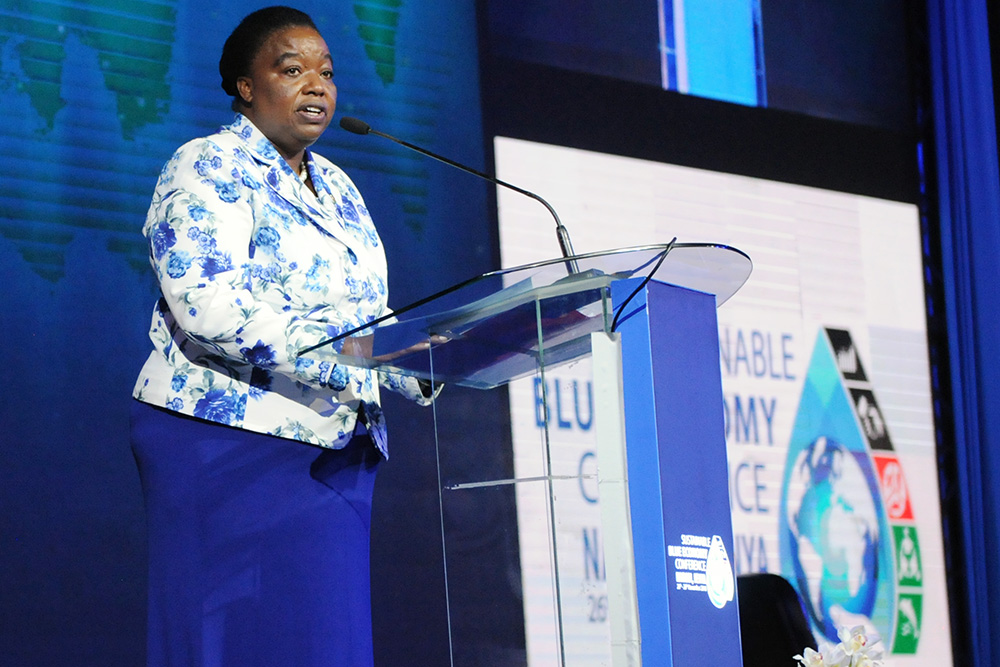
Monica Juma, Ministry of Foreign Affairs, Kenya
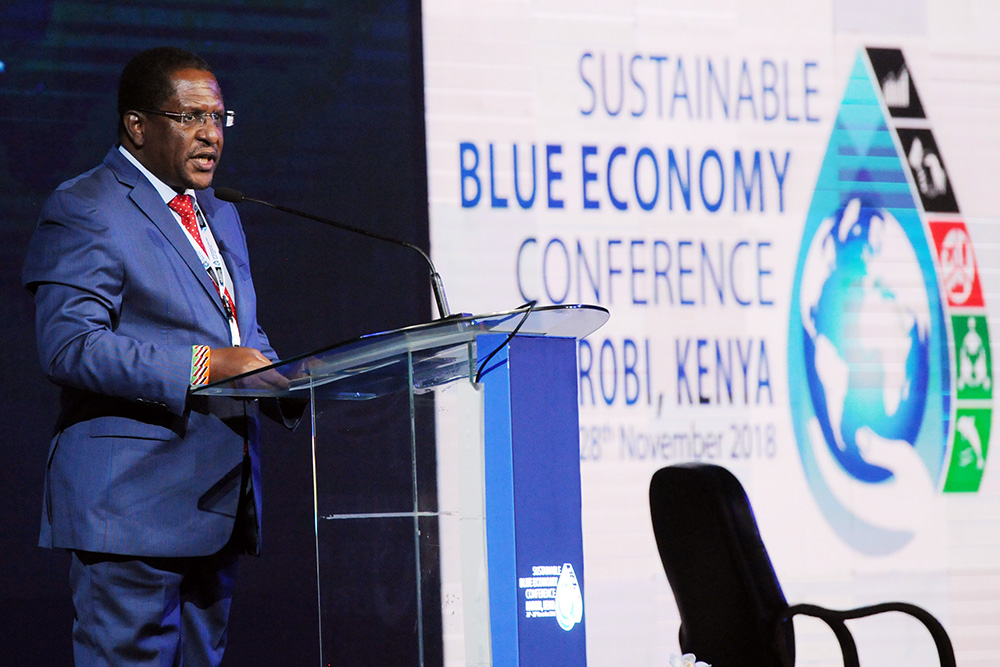
Keriako Tobiko, Ministry of Environment and Forestry, Kenya
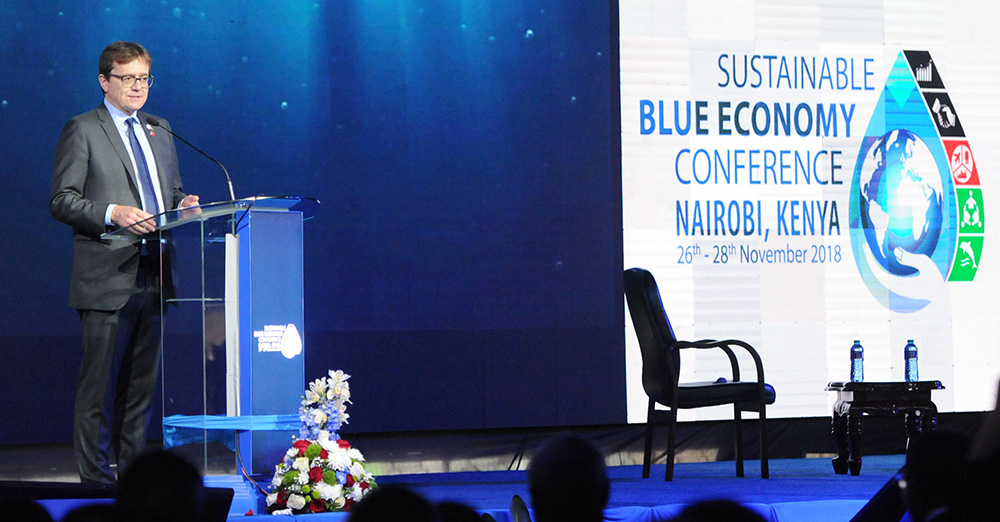
Jonathan Wilkinson, Minister of Fisheries, Oceans and the Canadian Coast Guard, Canada
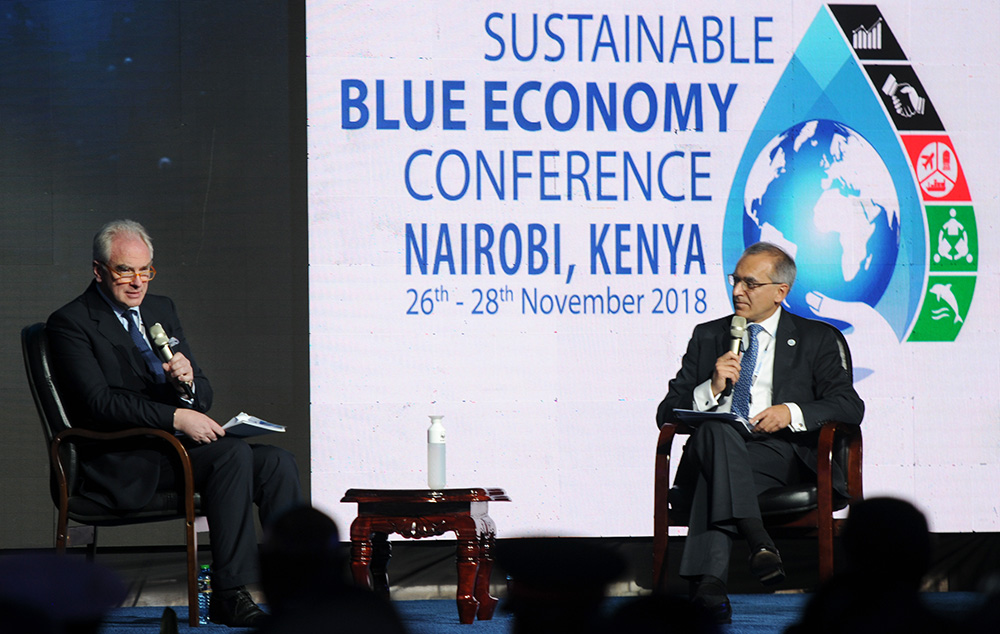
Justin Mundy, Senior Fellow and Special Envoy for Conflict and Natural
Resources, and Sustainable Ocean Initiatives, World Resources Institute (WRI), and Pavan Sukhdev, President, World Wide Fund for Nature (WWF International)
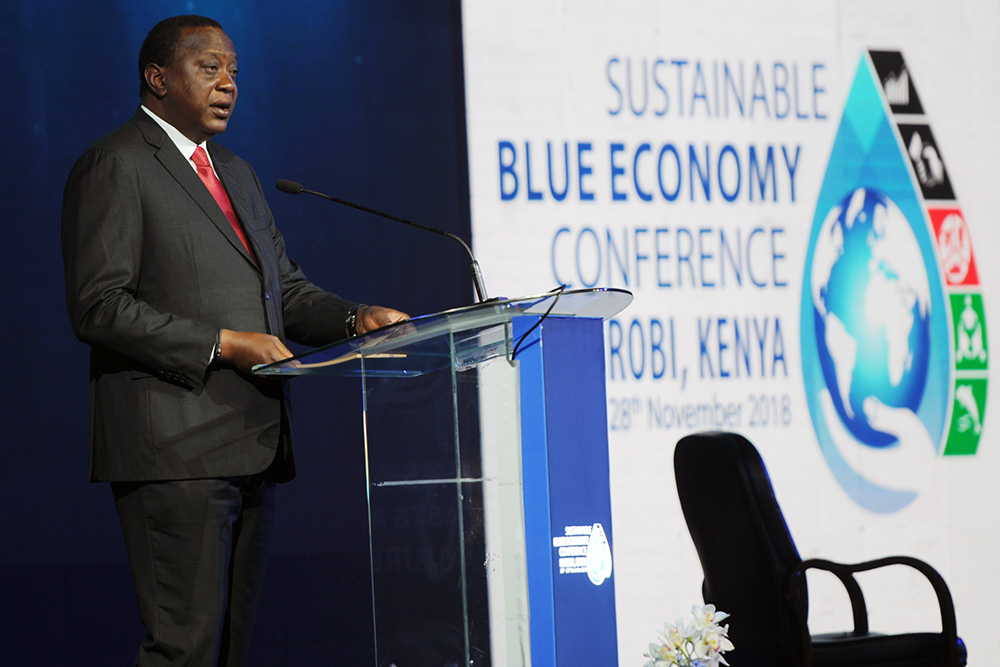
President Uhuru Kenyatta, Kenya
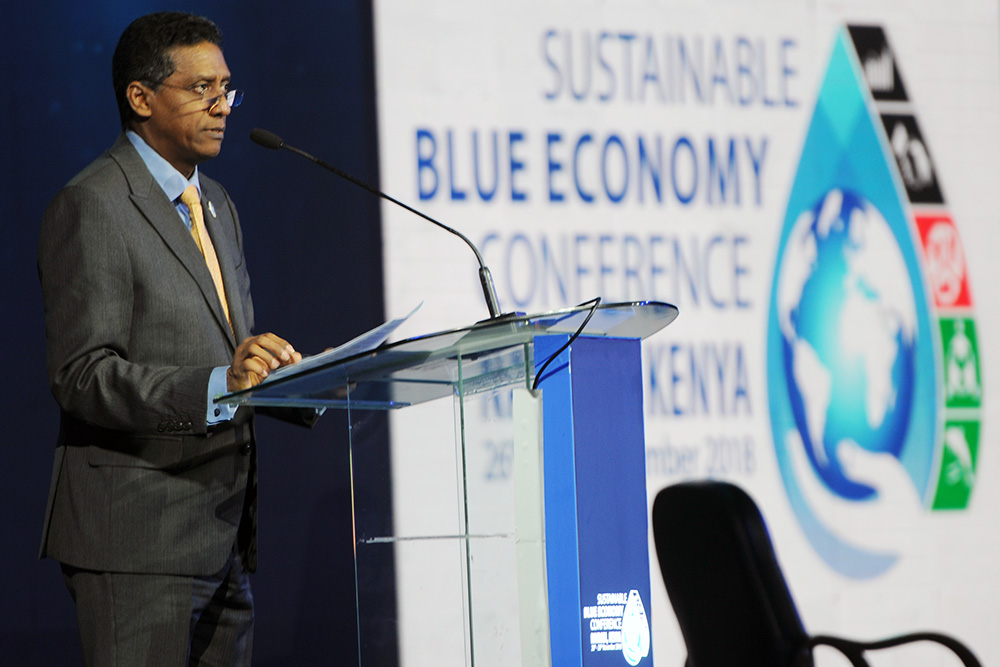
President Danny Faure, Seychelles
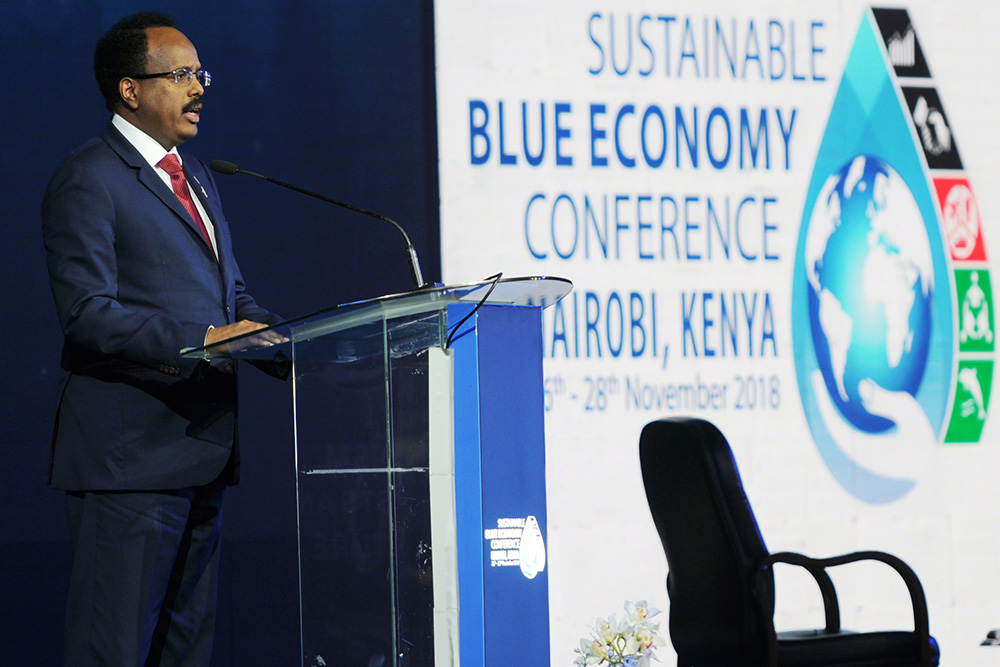
President Mohamed Abdullahi Mohamed, Somalia
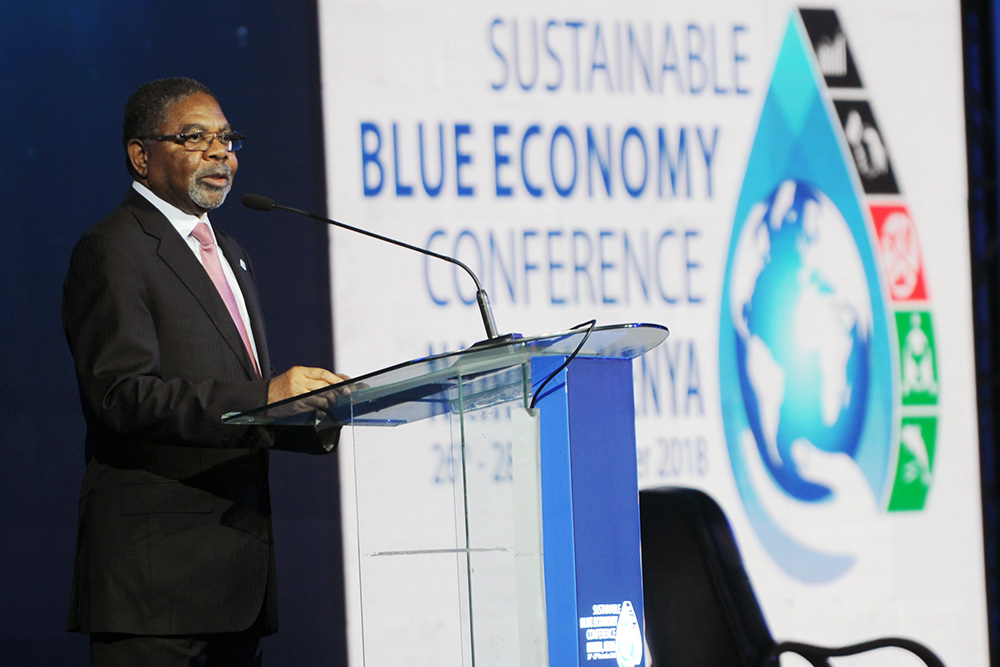
President Mohamed Shein, Zanzibar, on behalf of Tanzania
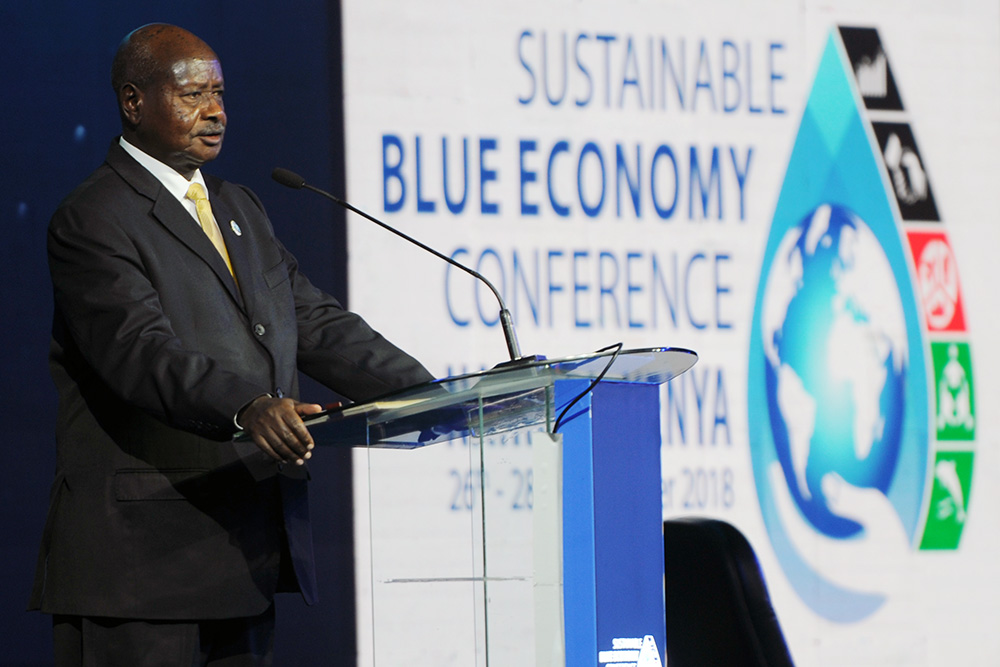
President Yoweri Kaguta Museveni, Uganda
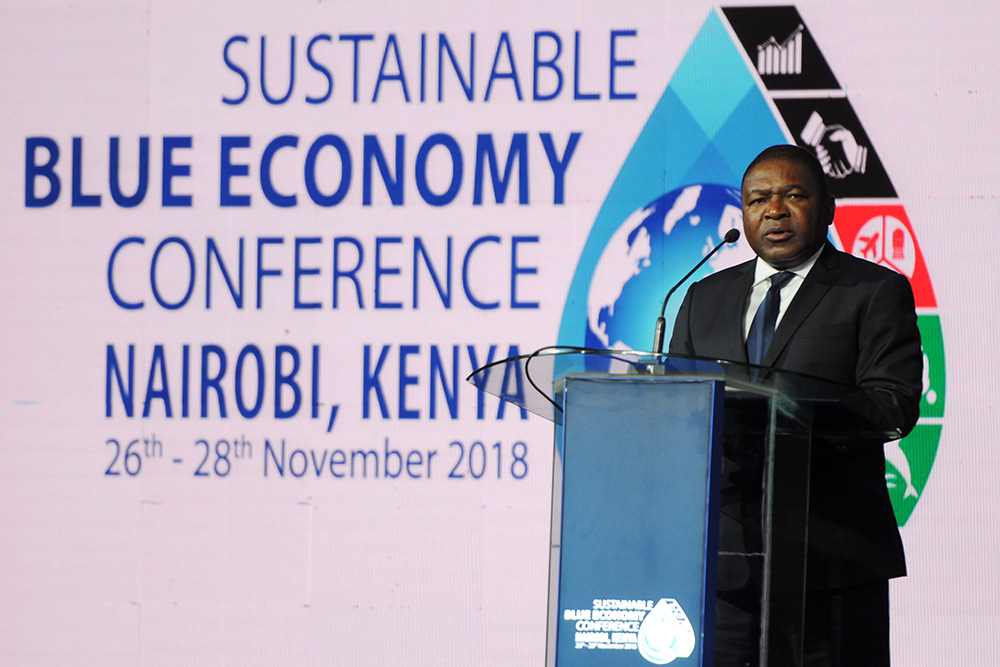
President Filipe Nyusi, Mozambique
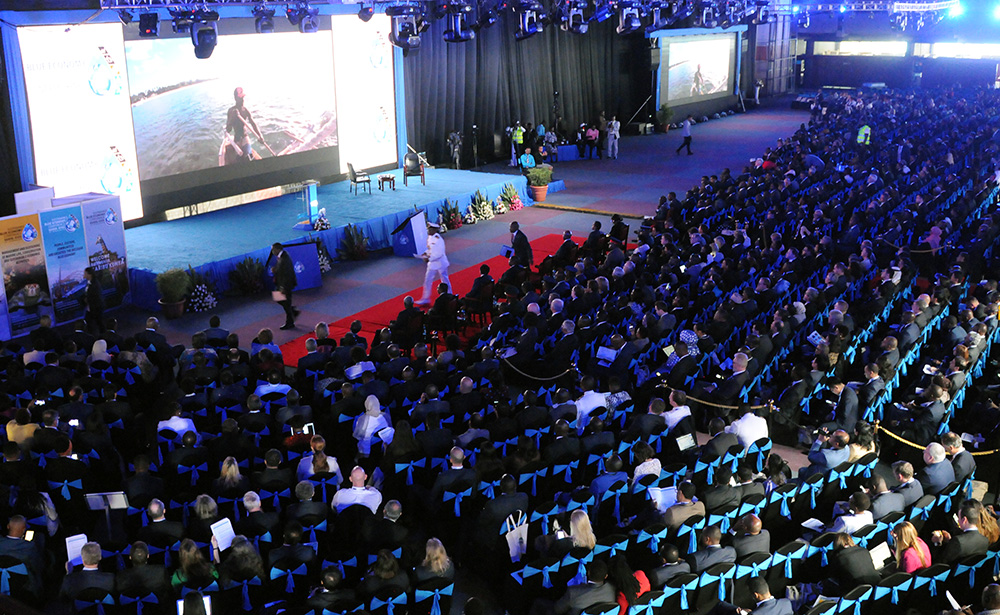
Participants watch a video on the blue economy
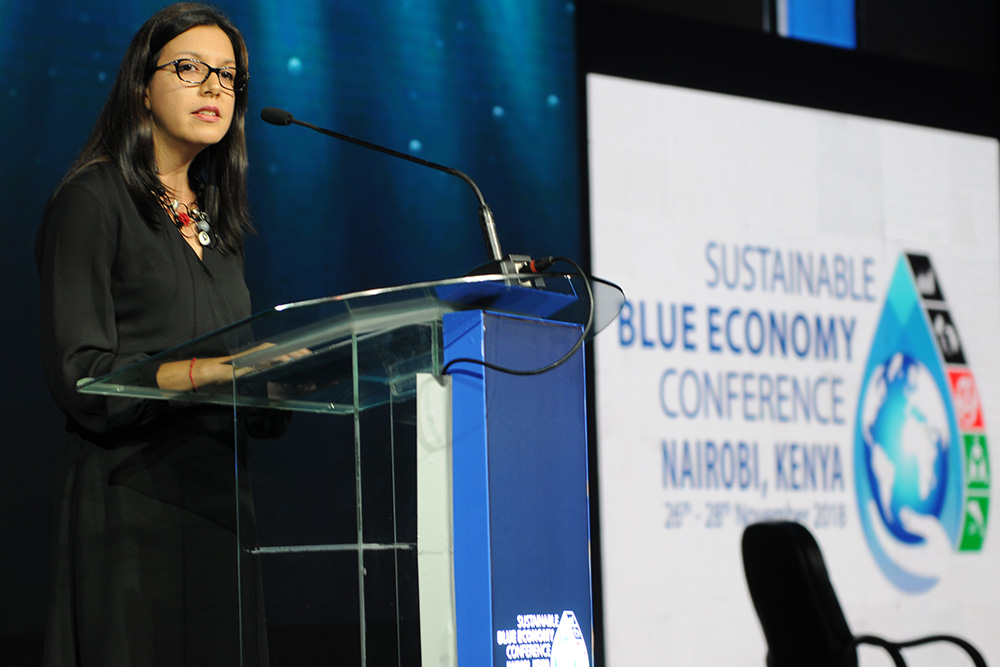
Haydée Rodríguez Romero, Vice-Minister of Water and Seas, Costa Rica
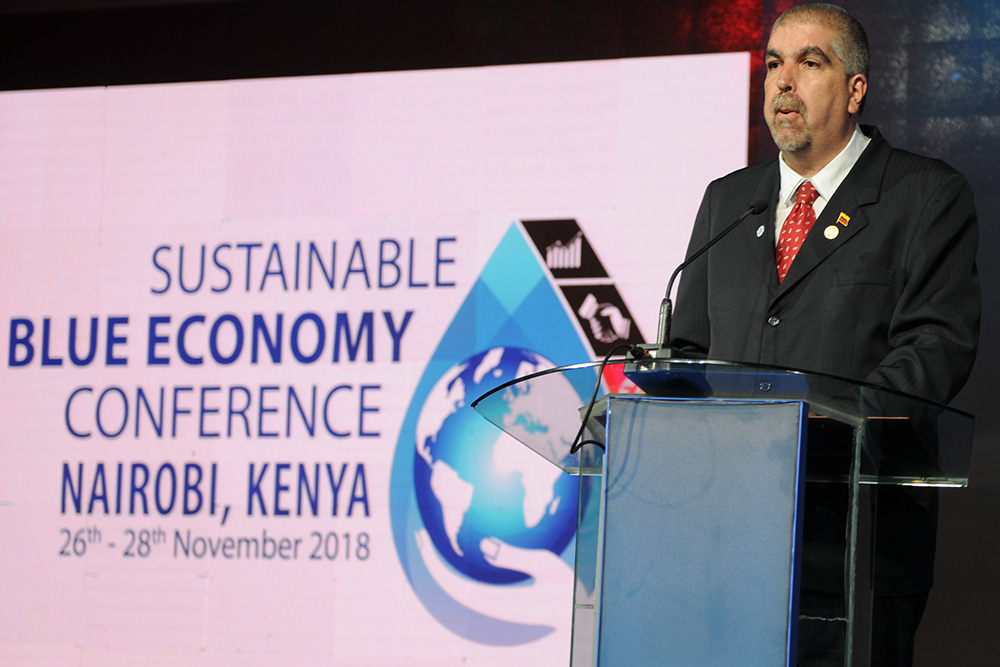
Yuri Pimentel, Ministry of the People's Power of Foreign Affairs, Venezuela
Women of the Blue Economy: Lessons from the Field for Better Equity and Participation
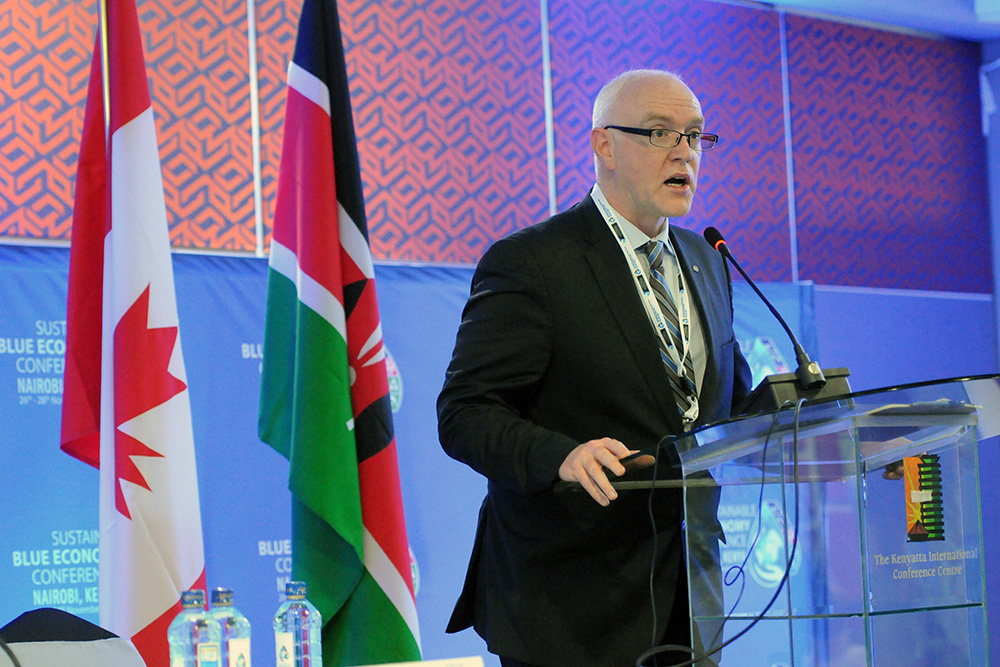
Chair Bruce Currie-Alder, International Development Research Centre (IDRC)
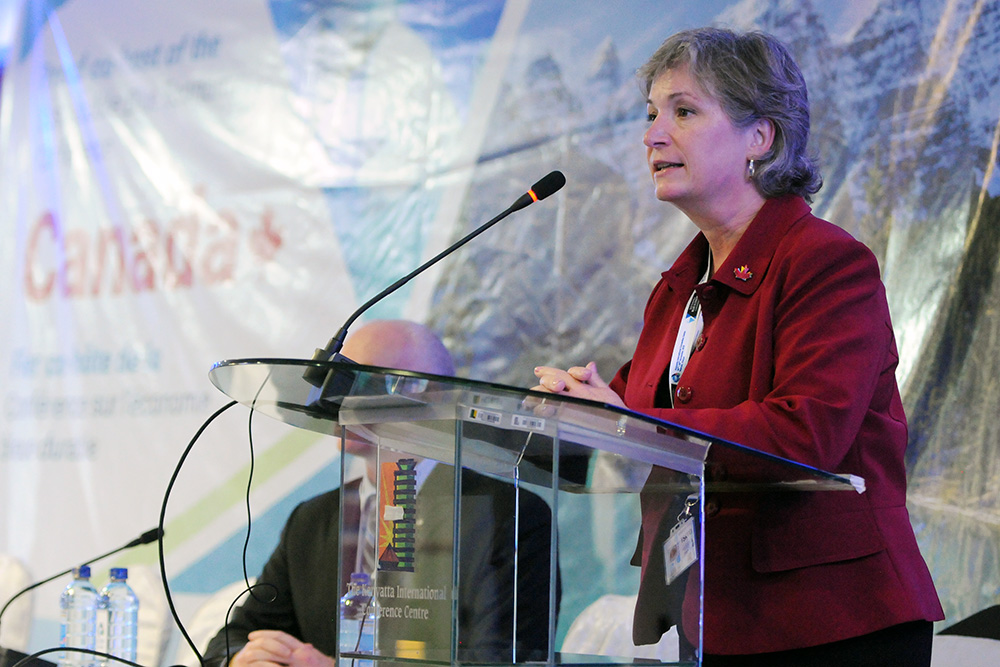
Lisa Stadelbauer, High Commissioner and Ambassador, Canada
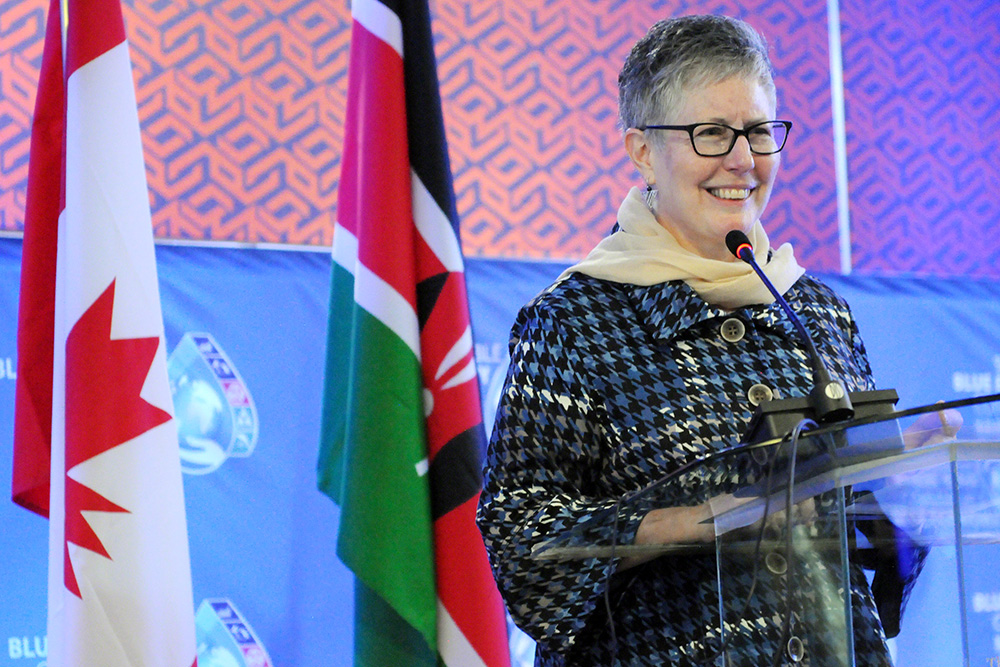
Kathryn Toure, IDRC
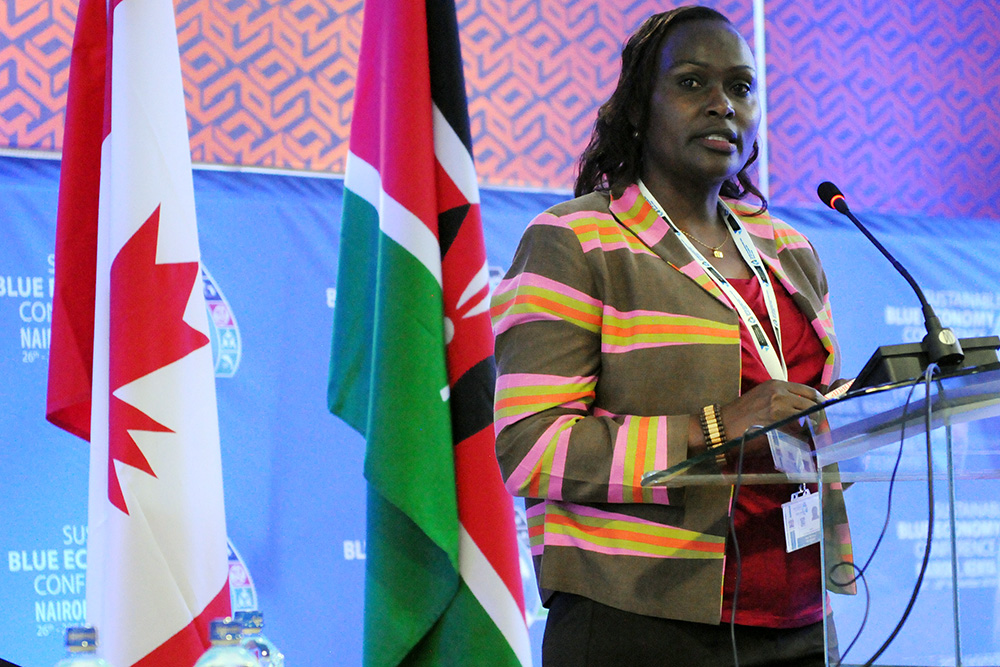
Jane Macharia, National Museums of Kenya
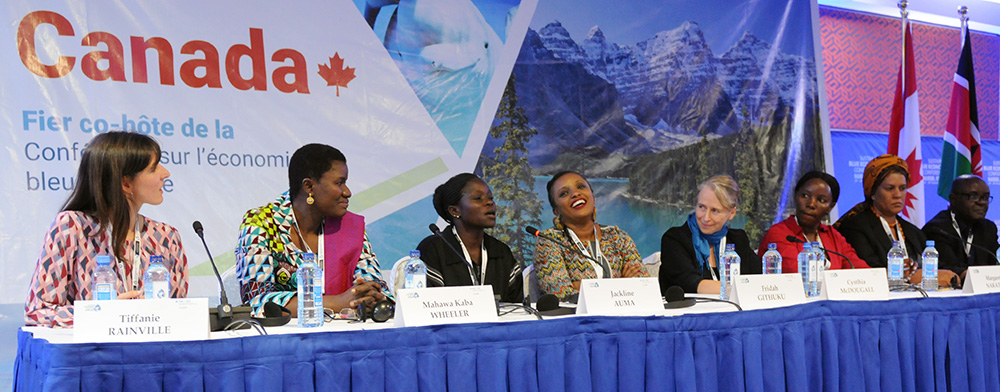
L-R: Tiffanie Rainville, Global Affairs Canada; Mahawa Kaba Wheeler, Director for Women, Gender and Development, African Union; Jackline Auma, Fisherwoman, Shakababo Lake Village, Tana River Delta, Tana County, Kenya; Fridah Githuku, Executive Director, Grassroots Organizations Operating Together in Sisterhood (GROOTS Kenya); Cynthia McDougall, WorldFish, Consultative Group on International Agricultural Research (CGIAR); Margaret Nakato, Director, Katosi Women Development Trust; Moenieba Isaacs, University of the Western Cape; and Kwasi Appeaning Addo, University of Ghana
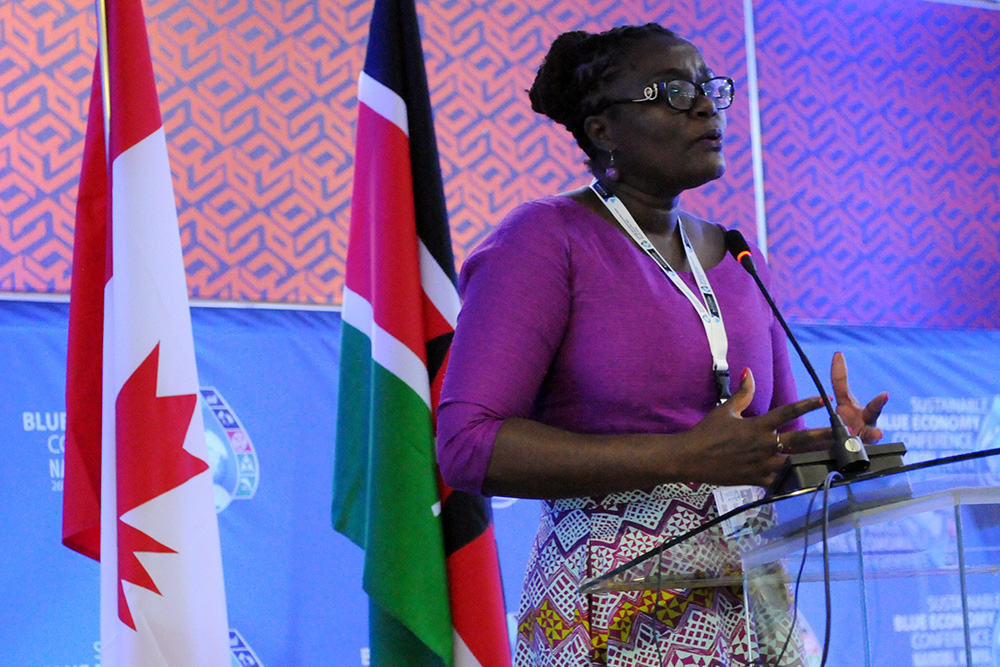
Jemimah Njuki, IDRC, moderating the discussion
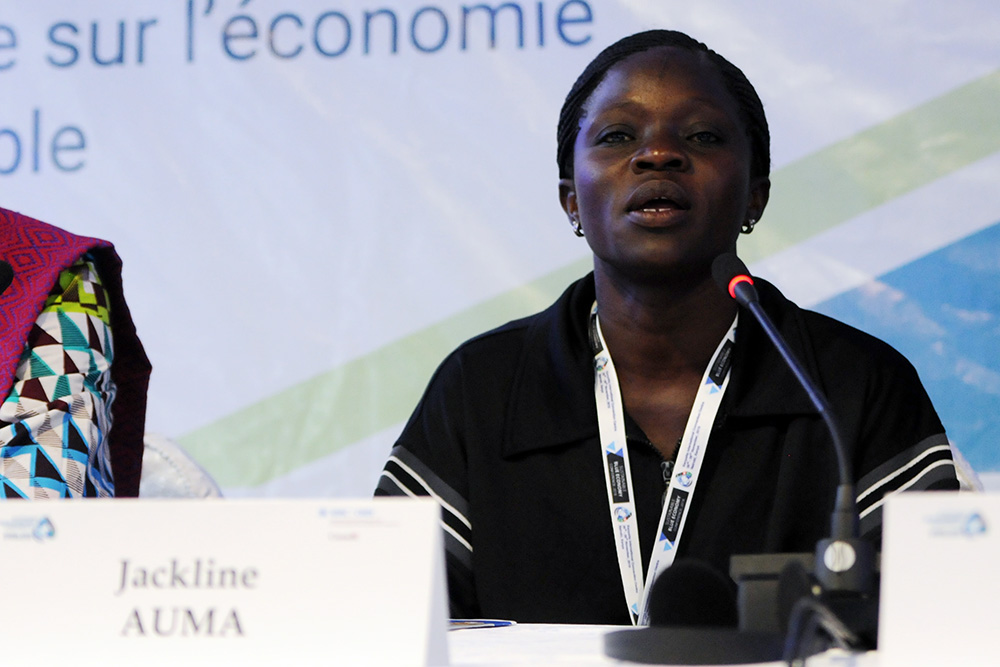
Jackline Auma, Fisherwoman, Shakababo Lake Village, Tana River Delta, Tana County, Kenya
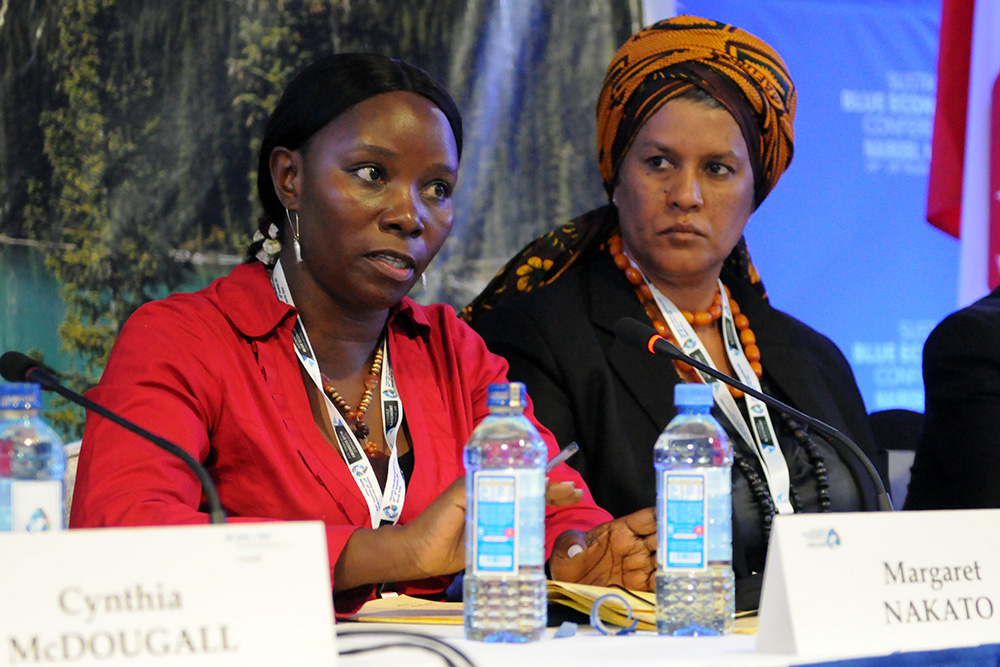
Margaret Nakato, Director, Katosi Women Development Trust
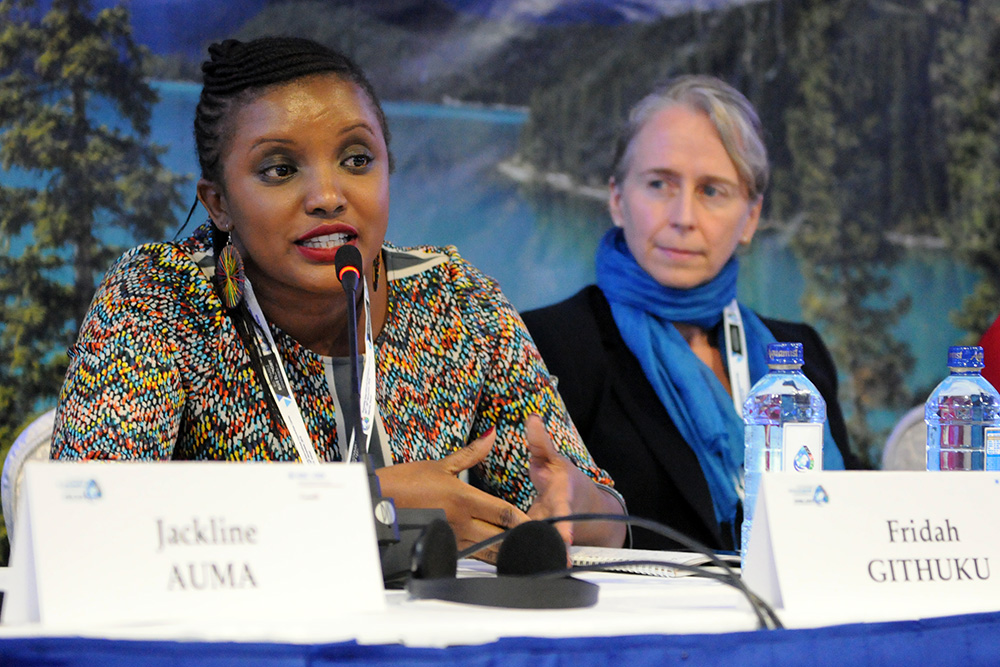
Fridah Githuku, GROOTS Kenya
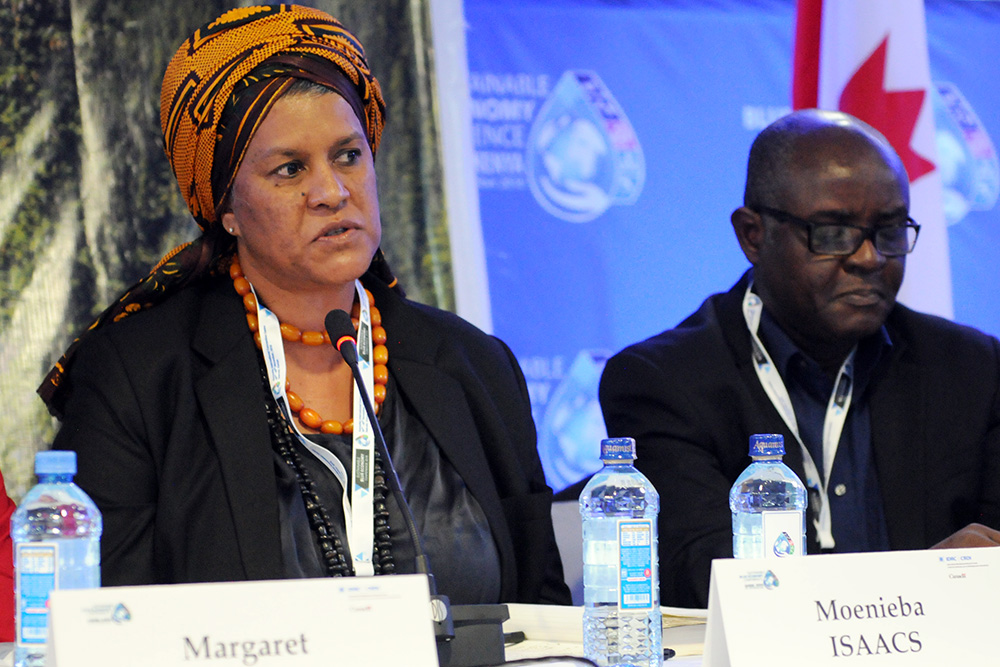
Moenieba Isaacs, University of the Western Cape
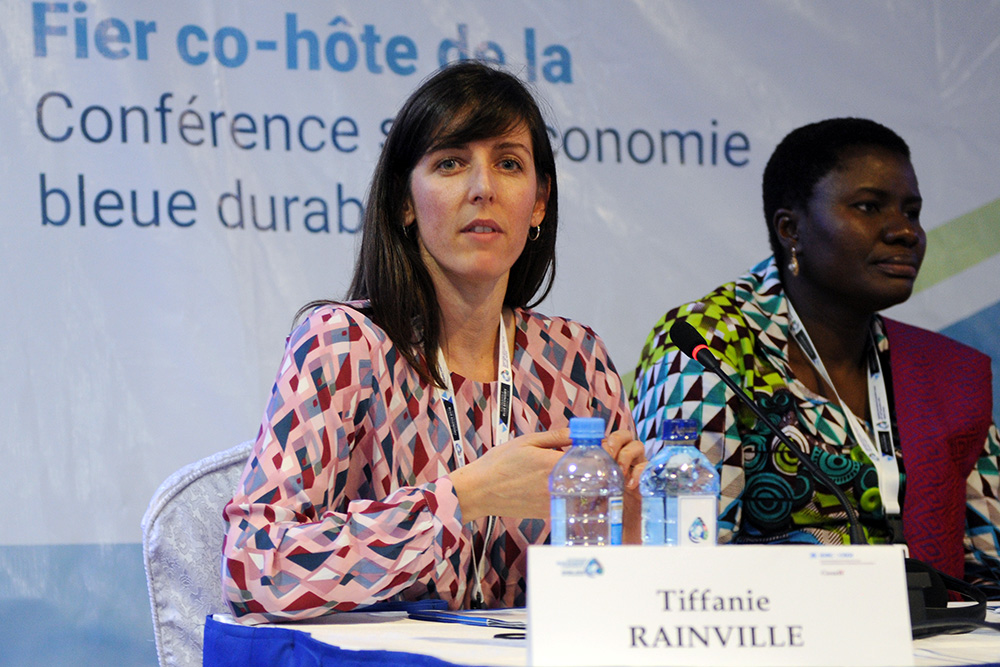
Tiffanie Rainville, Global Affairs Canada
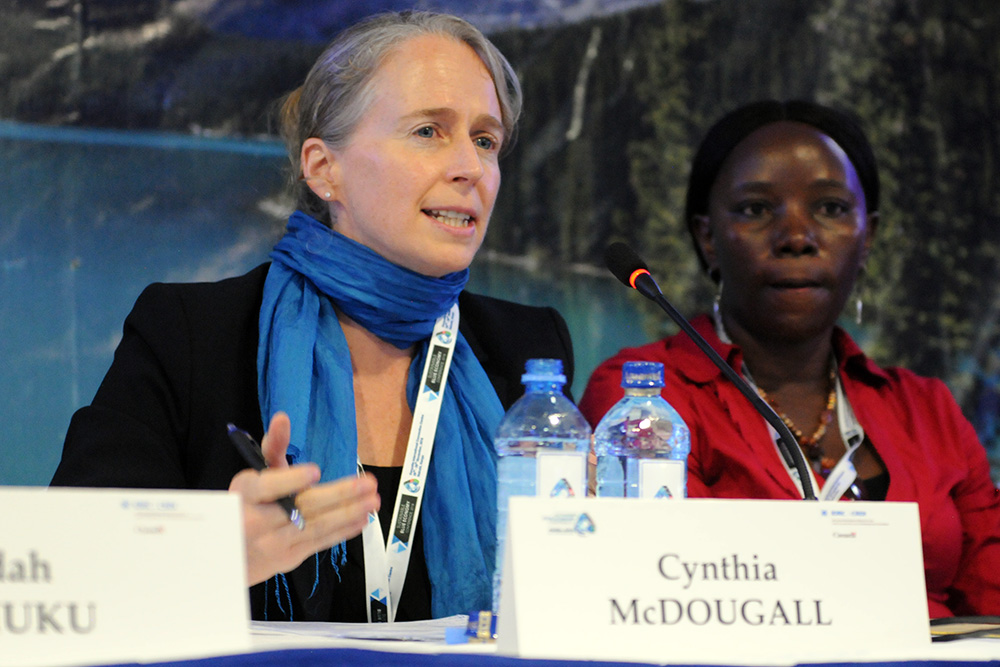
Cynthia McDougall, WorldFish, CGIAR
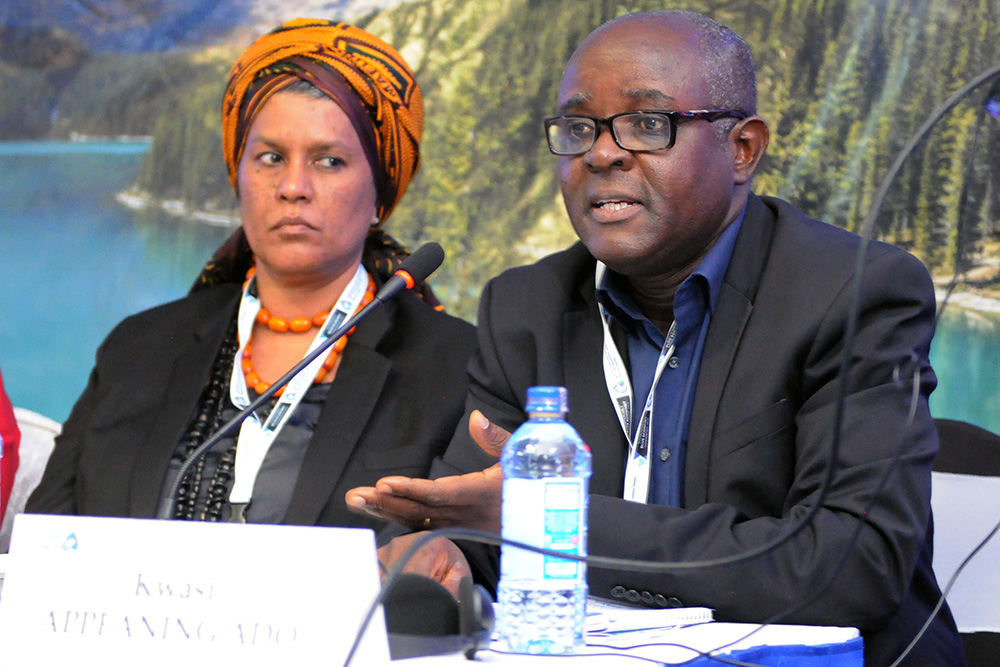
Kwasi Appeaning Addo, University of Ghana
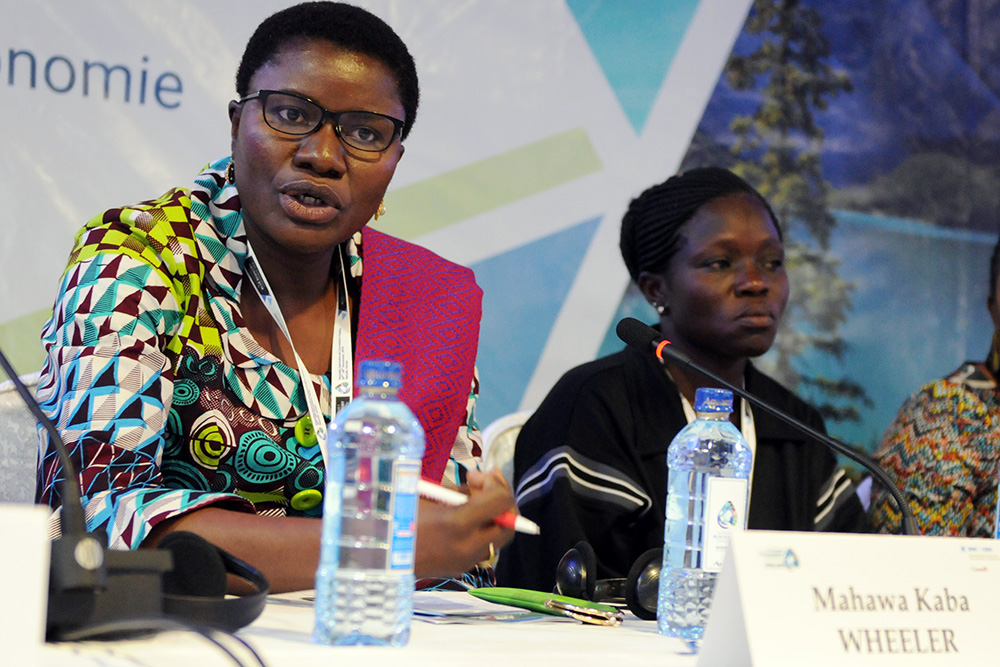
Mahawa Kaba Wheeler, Director for Women, Gender and Development, African Union
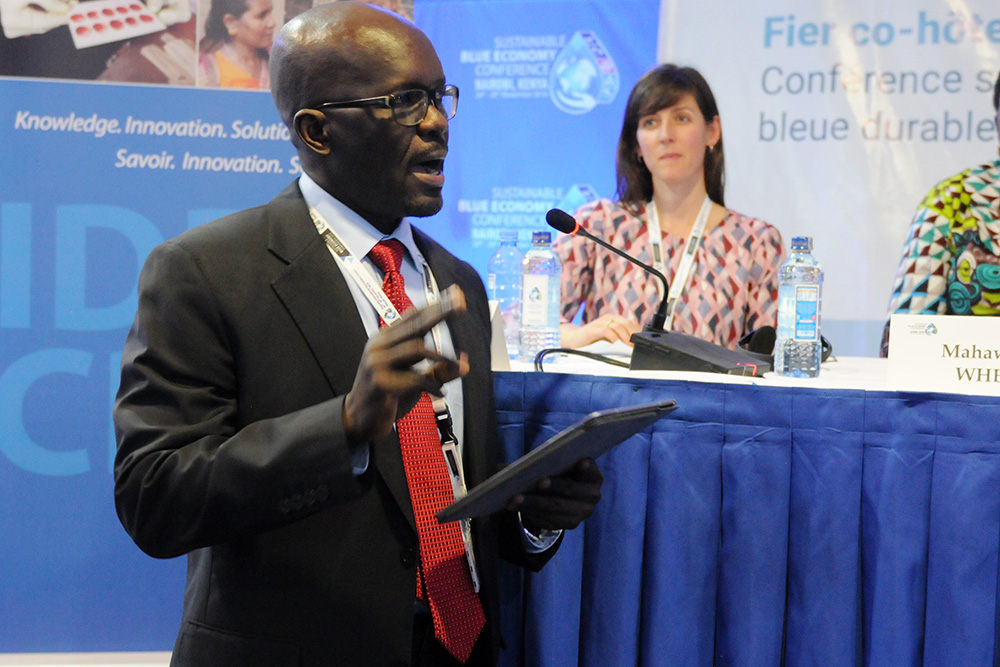
A participant asks a question to the panelists
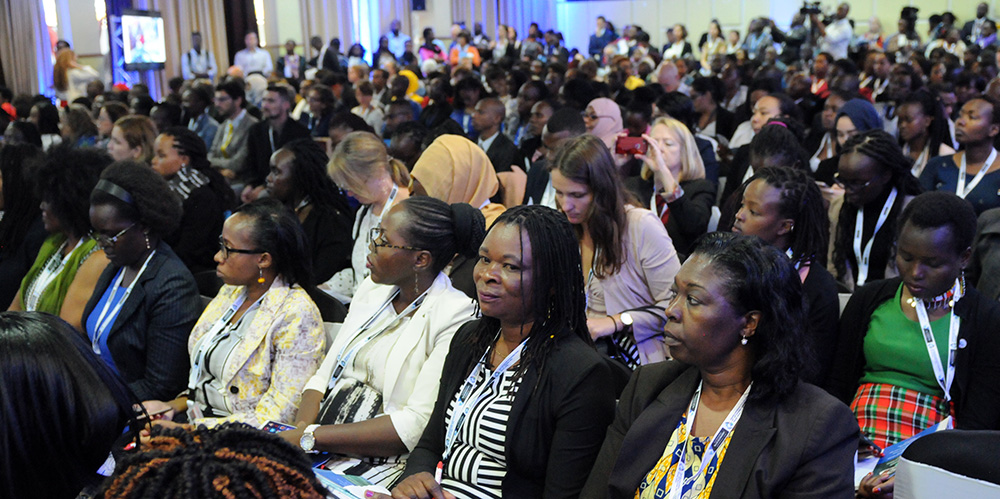
Participants during the event
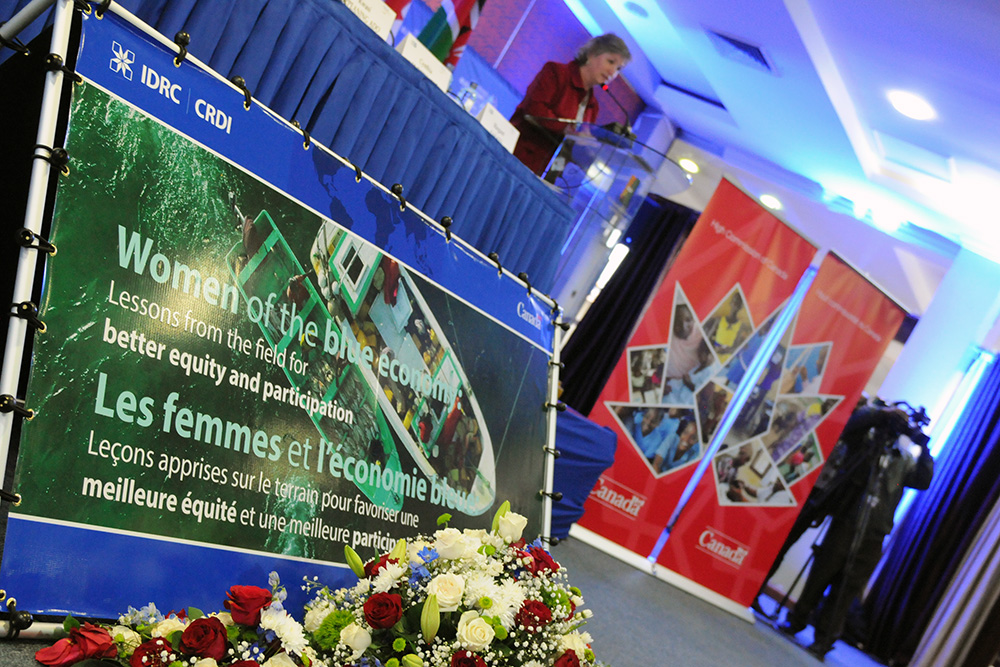
Around the Venue
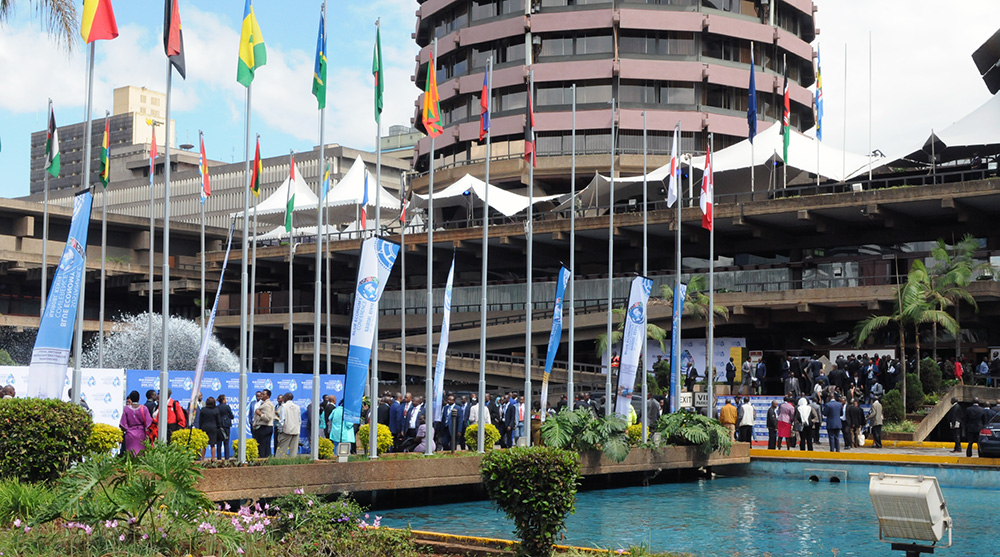
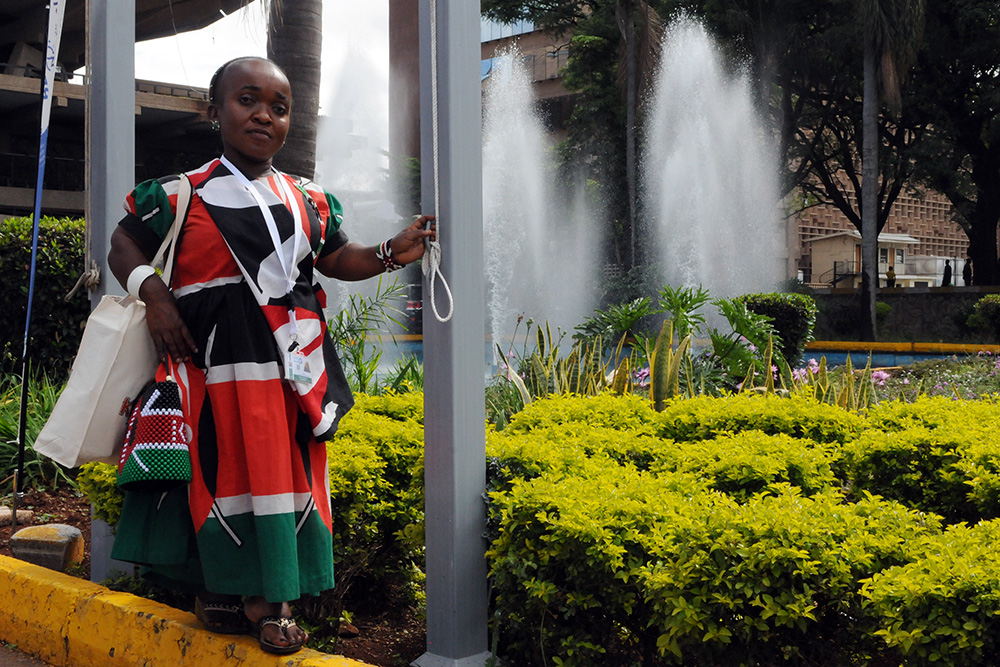
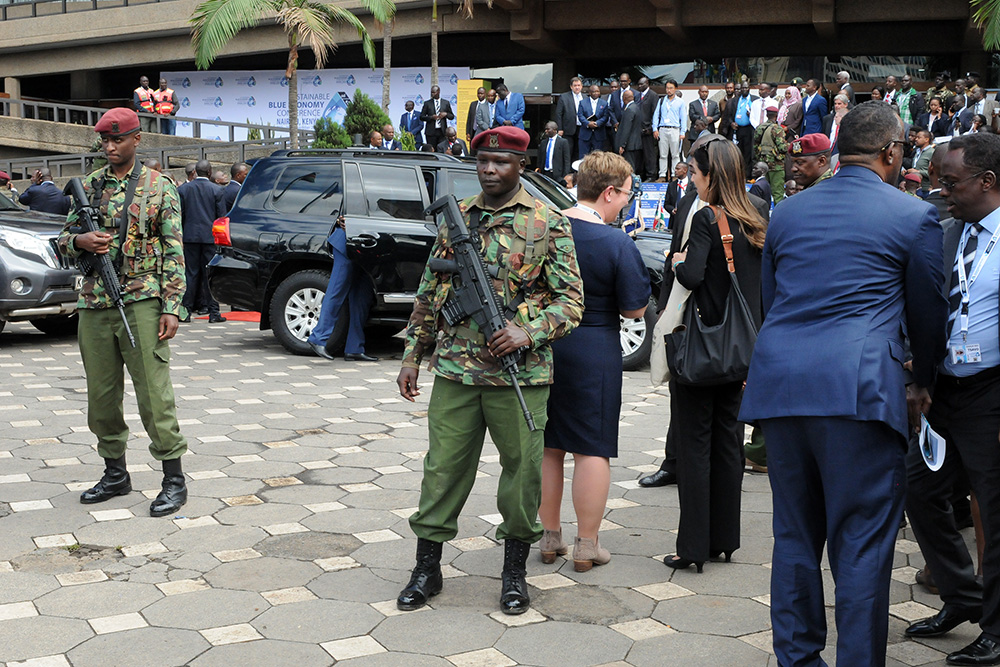
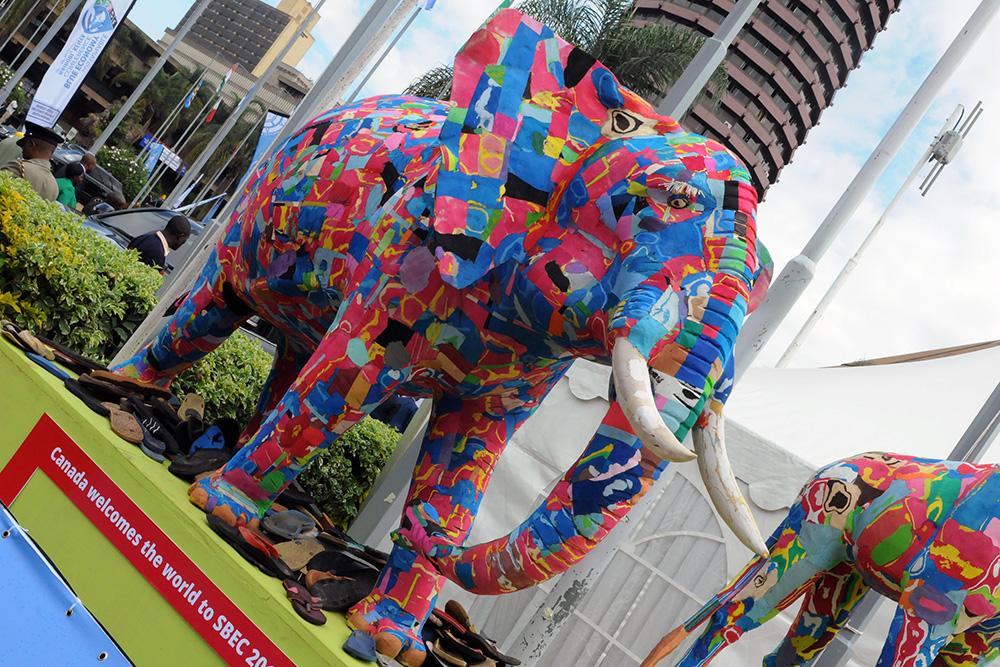
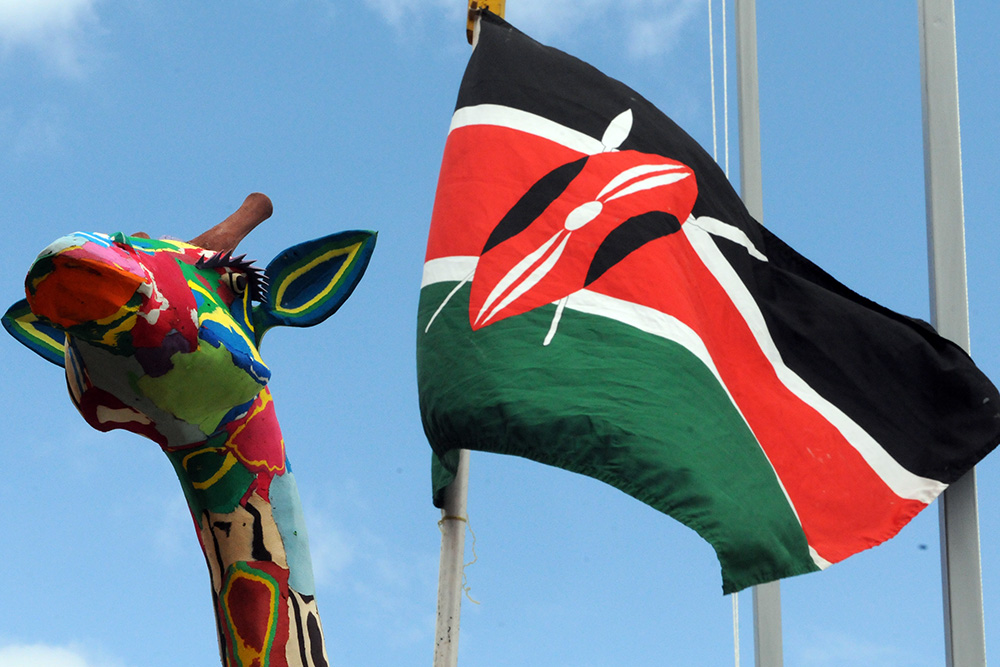
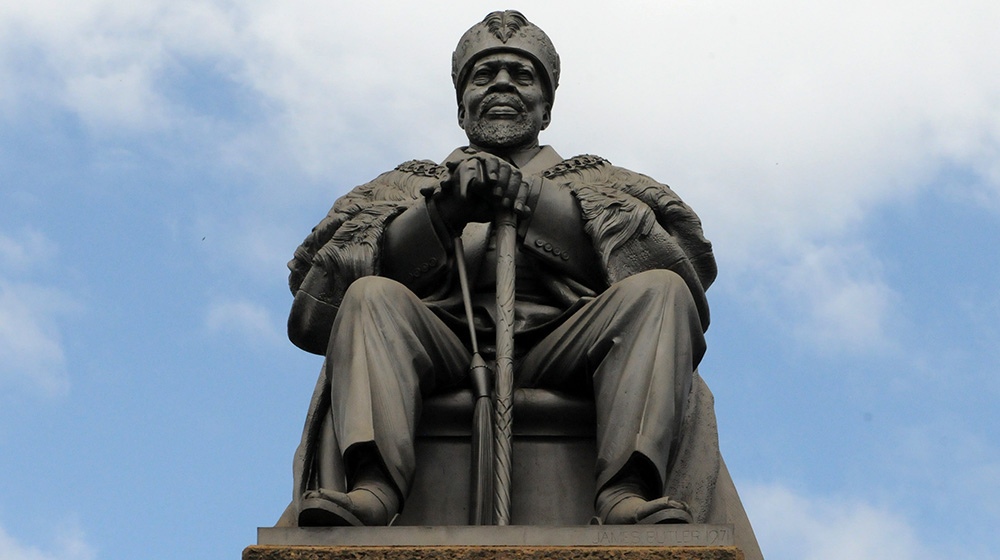
Statue of Mzee Jomo Kenyatta, first President of Kenya
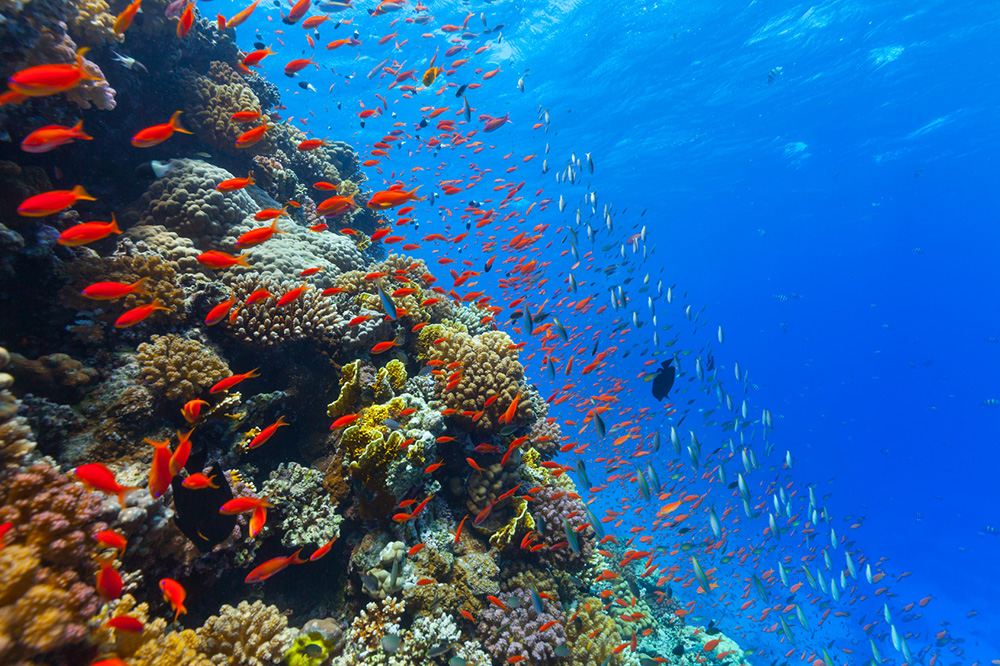
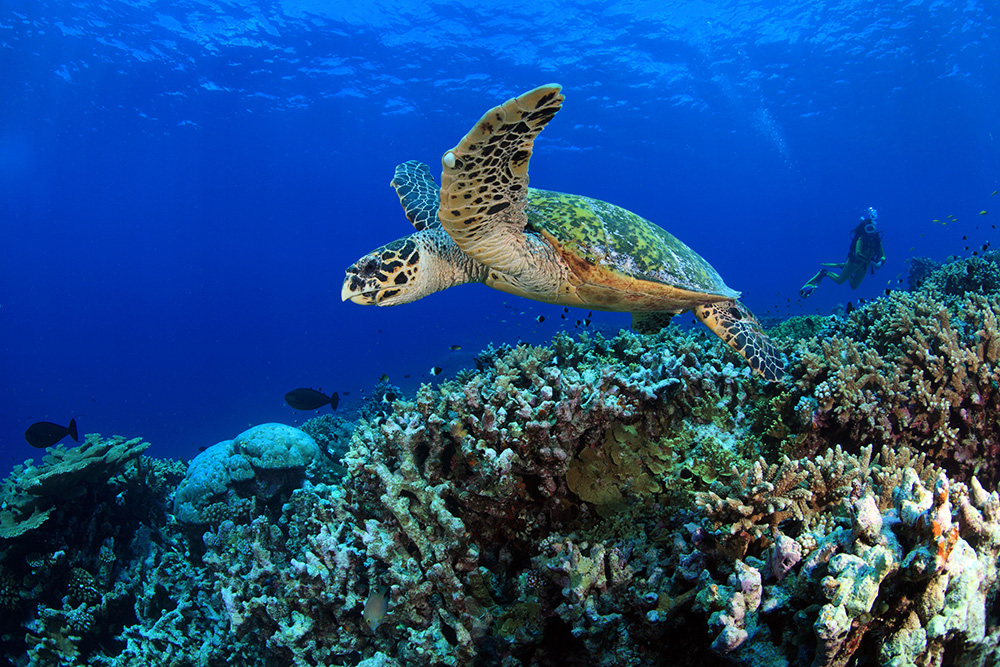
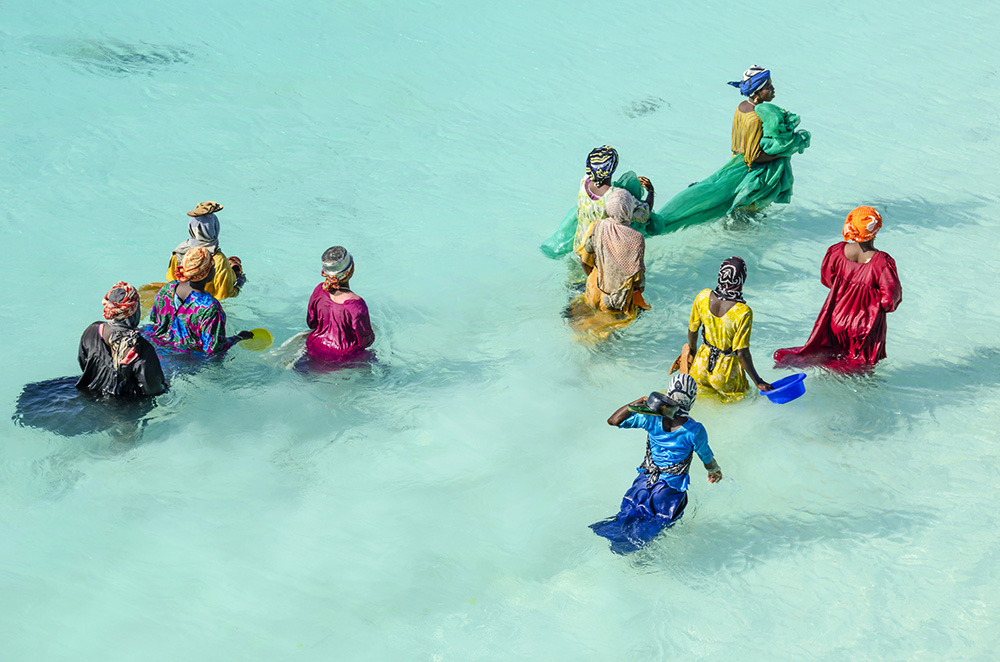


Source: https://enb.iisd.org/events/sustainable-blue-economy-conference/highlights-and-images-main-proceedings-26-november-2018